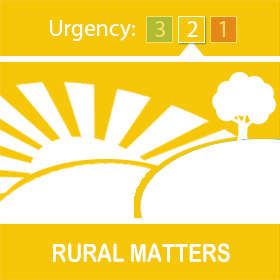
Residents in Devon, are being warned to be on their guard against a new text message scam where fraudsters impersonate family members.
The warning comes from Heart of the South West Trading Standards Service who say there have been many examples of fraudsters sending a text message purporting to be from the recipient’s son or daughter claiming that the sender has a new number or has broken or lost their phone.
Two examples seen by trading standards include:
The messages – and numerous others like them – are merely the first stage in a phishing scam, designed to dupe recipients into engaging with the new number and ultimately parting with personal data that could lead to identity theft and money transfer fraud.
There are also examples of the scam working the other way around, with the sender posing as a parent telling their son or daughter that they have a new number.
“Broke my phone Mum. Can you text my new number on 07425218812 I’m messaging you from a friends phone x.”
“Heya mom, I’ve upgraded my O2 contract so my old no is now out of use. Pop me a message on my new one at 07742844550 so I can save your contacts okay x.”
The use of SMS text messages – as opposed to, for example, an app like WhatsApp – lends the scam an extra level of credibility, since it is more likely that such apps would not yet be installed on a new or back-up phone.
As well as endangering the recipient, the scams also put young people at risk by creating the possibility that a parent might replace their actual number with the new fake one and be unable to contact them if the necessity arises.
Trading Standards recommends people who receive such messages to:
- phone the sender on their original number to check whether the message is genuine
- if they are unreachable, verify the identity of the sender by asking them a question only they would know
- Check online if the new number has been reported as a scam
- never pass on personal details or make any payment via your phone unless you are 100% sure the person you are speaking with is who they say they are
- be wary of suspicious wording, unusual spellings or phrases that seem out of character –many scammers make obvious errors, particularly if English is not their first language
- always take time before replying to any message to stop, take a breath, and consider whether it is genuine
Fakir Osman, head of Heart of the South West Trading Standards Service, said:
“Parents are often understandably worried about whether their children are safe and can be contacted in case of an emergency. Scammers know this, and they exploit that concern by posing as family members, with the ultimate aim of harvesting personal information.
“There are some basic things you can do, like verifying the sender via their original number, or asking questions that only they would know the answer to, to give yourself some peace of mind and avoid being scammed.”
Councillor Rufus Gilbert, Devon County Council’s Cabinet Member for Economy and Skills, said: “
“We advise anyone who receives a message like this out of the blue to take just a few moments to double-check that it is genuine. Doing so could save you from a lot of trouble later on.”

 Criminal investigation into suspended Chief Constable dropped
Criminal investigation into suspended Chief Constable dropped
 Devon families receive their primary school place offers
Devon families receive their primary school place offers
 Theft of Quad Bike / Livestock Trailer and / Farm Tools - Tiverton and Withleigh Area
Theft of Quad Bike / Livestock Trailer and / Farm Tools - Tiverton and Withleigh Area
 Stay vigilant for ticket fraud ahead of top events and concerts this summer.
Stay vigilant for ticket fraud ahead of top events and concerts this summer.













